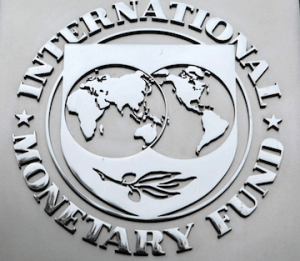IMF Board approves $3b 36-month Extended Credit Facility for Ghana
 The Executive Board of the International Monetary Fund (IMF) May 17, 2023 gave approval for a 36-month Extended Credit Facility arrangement for Ghana totalling $3 billion. Following the approval, the IMF will disburse $600 million immediately.
The Executive Board of the International Monetary Fund (IMF) May 17, 2023 gave approval for a 36-month Extended Credit Facility arrangement for Ghana totalling $3 billion. Following the approval, the IMF will disburse $600 million immediately.
According to the IMF, Ghana’s economic programme supported by the Facility builds on the government’s Post COVID-19 Programme for Economic Growth, which aims to restore macroeconomic stability and debt sustainability and includes wide-ranging reforms to build resilience and lay the foundation for stronger and more inclusive growth.
However, “securing timely debt restructuring agreements with external creditors will be essential for the successful implementation of the new ECF arrangement,” the Fund said.
The Funds notes further that large external shocks in recent years have exacerbated Ghana’s pre-existing fiscal and debt vulnerabilities, resulting in a loss of international market access, increasingly constrained domestic financing, and reliance on monetary financing of the government.
“Decreasing international reserves, Cedi depreciation, rising inflation and plummeting domestic investor confidence, eventually triggered an acute crisis. The authorities have taken bold steps to tackle these deep challenges, including by accelerating fiscal adjustment. The government has also launched a comprehensive debt restructuring to address severe financing constraints and the unsustainable public debt. Securing timely debt restructuring agreements with external creditors will be essential for the successful implementation of the new ECF arrangement,” it added.
Ghana is expected to implement key policies under the programme, which include large and frontloaded fiscal consolidation to bring public finances back on a sustainable path, complemented by efforts to protect the vulnerable. The adjustment effort will be supported by ambitious structural reforms in the areas of tax policy, revenue administration, and public financial management, as well as steps to address weaknesses in the energy and cocoa sectors.
“Appropriately tight monetary and flexible exchange rate policies will help bring inflation back to single digits and rebuild international reserves. The programme also has a strong focus on preserving financial stability and encouraging private investment and growth,” the IMF said.
It also added that the programme will help Ghana overcome immediate policy and financing challenges, including through its catalytic effect in mobilizing external financing from development partners and providing a framework for the successful completion of the ongoing debt restructuring.
Commenting soon after the approval, the IMF Magaging Director, Kristalina Georgieva said, “The combination of large external shocks and preexisting fiscal and debt vulnerabilities precipitated a deep economic and financial crisis in Ghana. In response, the authorities have launched a comprehensive reform program, to be supported by the ECF-arrangement. It is focused on restoring macroeconomic stability and debt sustainability as well as implementing wide-ranging reforms to build resilience and lay the foundation for stronger and more inclusive growth. Capacity development and continued support by development partners would be critical for the successful implementation of the authorities’ programme.”
She also noted that fiscal consolidation is a core element of the program. A substantial and front-loaded fiscal adjustment has started with the 2023 budget. Enhanced revenue and streamlined expenditure will be combined with policies to protect vulnerable households and create room for higher social and development spending in the medium term. With a view to fostering lasting fiscal discipline, the authorities are also advancing reforms to enhance domestic revenue mobilization, strengthen public financial management, and tackle the deep challenges in the energy and cocoa sectors. The government has also launched a comprehensive debt restructuring, including both domestic and external debt, to place debt on a sustainable path. Effective collaboration by all parties involved would be critical.”
She also made remarks on the country’s financial sector.
She said: “Preserving financial sector stability is critical for the success of the program. Given the adverse impact of the domestic debt restructuring on balance sheets of financial institutions, the authorities will devise and implement a comprehensive strategy to rapidly rebuild financial institutions’ buffers and exit from temporary regulatory forbearance measures.
“Monetary and exchange rate policies under the program will focus on reining in inflation and rebuilding foreign reserve buffers. The Bank of Ghana will continue tightening monetary policy until inflation is on a firmly declining path and will eliminate monetary financing of the budget. The central bank will also enhance exchange rate flexibility and limit foreign exchange interventions to rebuild external buffers.
“An ambitious structural reform agenda is being put in place to reinvigorate private sector-led growth by improving the business environment, governance, and productivity.”
The Ghanaian economy is literally broken with the currency, the cedi, struggling against the US dollar. Inflation is high above 42 per cent and public debt above 80 per cent.
Despite all the chances it had to act responsibly to rescue the economy, the government was obstinate. It continued on a borrowing spree and unchecked spending, consistently claiming the economy is doing well, and saying Ghana would not go to the IMF.
When the administration took office in 2017, the country was on an IMF programme, but few months into office, the administration pull out, enabling it to run the economy without any efficient checks and balances as the programme would have required.
By Emmanuel K Dogbevi
Copyright ©2023 by NewsBridge Africa
All rights reserved. This article or any portion thereof may not be reproduced or used in any manner whatsoever without the express written permission of the publisher except for the use of brief quotations in reviews.
